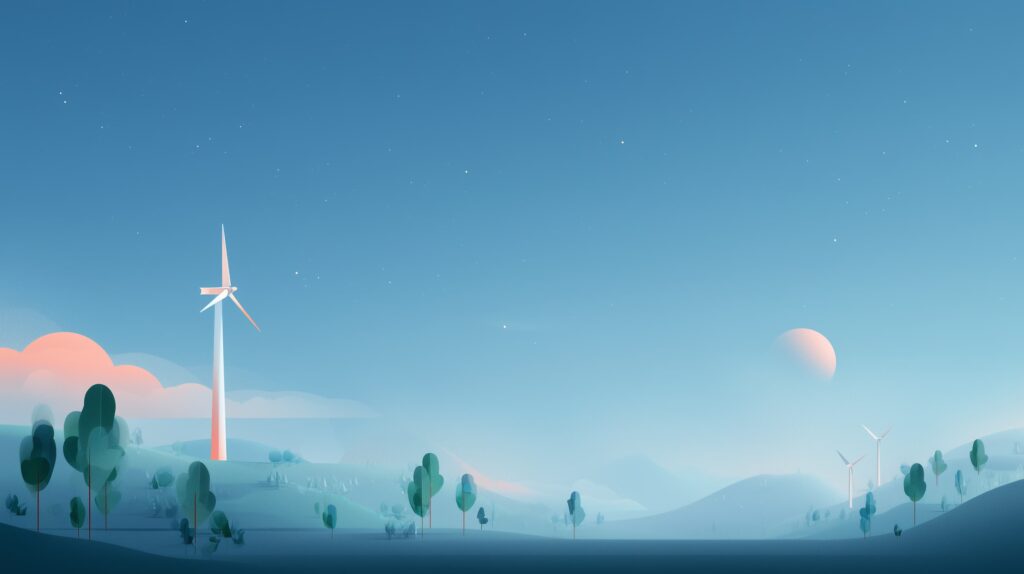By Marcus Couto
- The “Energia em Foco” event was held in the context of the open applications for the eighth edition of 100 Startups to Watch.
- Bruno Cabral, partner at EloGroup, participated alongside other experts from the energy innovation ecosystem.
- During the conversation, the role of startups in the evolution of the energy sector was discussed.
Brazil is already an energy giant with a strong focus on renewable sources, but it still presents valuable opportunities for expansion in areas such as distributed solar generation, as well as in discussions around applying data, technology, and digital intelligence to increase value generation across the entire chain. And this is fertile ground for startups, as became clear in the online dialogue promoted by Pequenas Empresas & Grandes Negócios, held in the context of the open applications for the eighth edition of 100 Startups to Watch.
The award, organized by Pequenas Empresas & Grandes Negócios (PEGN), Época Negócios, and Valor Econômico, in partnership with EloGroup and Innovc, highlights the most promising companies in entrepreneurship, technology, and innovation across key sectors of the Brazilian economy.
According to data from the Energy Research Office (EPE), 88.2% of Brazil’s electricity demand in 2024 was met by renewable sources, with wind and solar accounting for 24% of the total. Distributed solar generation, including micro and mini systems, reached 5.6% of the country’s total electricity production.
According to the National Electric Energy Agency (ANEEL), Brazil surpassed 40 GW of installed capacity in distributed solar generation (DG). In July 2024, that figure stood at 30 GW.
This scenario—reflecting just one specific slice of the broader market—reveals the strong appetite for innovation in Brazil’s electricity sector, especially as the country remains under the global spotlight ahead of the United Nations Climate Change Conference (COP30), set to take place in Pará, in November 2025.
The Role of Startups in the Energy Transition
“Startups are not just welcome — they’re essential,” says Bruno Cabral, partner at EloGroup. “They have the ability to explore opportunities where other companies only see risk. They test new models in agile and disruptive ways, and they accelerate emerging discussions, such as distributed generation, microgrids, IoT, green hydrogen, and more. We’re seeing many promising examples — from carbon traceability platforms to battery-as-a-service models. Without startups, discussing these topics would be a major challenge. That’s why they are fundamental.”
Hudson Mendonça, founder and CEO of Energy Summit, reinforces this view: “Today there’s a consensus that the future of energy and the energy transition rests on the 4 Ds: decarbonization, decentralization, digitalization, and democratization. This is a very favorable environment for startups. Two trillion dollars are invested annually in the energy sector, and there is still no clear answer as to which path will prevail over the next 20 years. This uncertainty is fertile ground for these kinds of companies.”
Luíza Cohen, corporate innovation manager at Neoenergia, highlights the challenges posed by climate change and how innovation can offer a response to the growing risks affecting Brazil’s energy grid.
“Brazil has a natural competitive advantage in our energy matrix,” says Luíza. “But climate change remains a significant challenge. We’re facing heat waves and prolonged droughts that impact energy production. Modernizing, expanding, and digitizing our power grids is essential to ensure resilience and sustainability. We must invest in innovation. You can’t talk about energy transition without talking about startups.”
Maurício Queiroz, from Tidalwatt — a startup selected for the 100 Startups to Watch list that developed proprietary technology to generate energy from ocean currents — spoke about the broad scope of startup activity in the energy ecosystem. “Startups have the ability to solve both old and new problems,” says Queiroz. “Brazil doesn’t have to stick to outdated solutions if there are innovative ways to address the same issues. There are new solutions to our problems — and startups bring them to the table. We need that.”
Relationship with Large Corporations and New Ways of Experimenting
Bruno Cabral, from EloGroup, further explored the evolving relationship between large corporations and startups:
“We’ve seen a behavioral shift in organizations,” says Cabral. “Major players have moved from being spectators to becoming active participants in the energy innovation ecosystem.”
In the past, partnerships between corporations and startups were mostly sporadic. Today, companies are establishing internal hubs, accelerators, and open innovation programs. They are building structures to identify high-impact technologies within their ecosystems, with well-defined criteria, validation pathways, and innovation funnels.
Cabral also highlighted the evolution of investment vehicles and experimentation methods:
“Previously, the model was too rigid. Now, we’re seeing more flexible approaches, such as corporate venture capital (CVC), minority stake investments, and structures designed to foster synergy,” he explains.
“There’s now an environment that encourages testing solutions and assessing their scalability. Another important change is prioritizing structured, end-to-end pilots — including regulatory integration from the beginning of the experiment — to ensure scale-up potential. Regulatory and legal issues are no longer left until the end. There’s a shift in how we experiment.”
Watch the full recording of the “Energia em Foco” event below:
MARCUS COUTO is Senior Writer and Editor at EloInsights.











